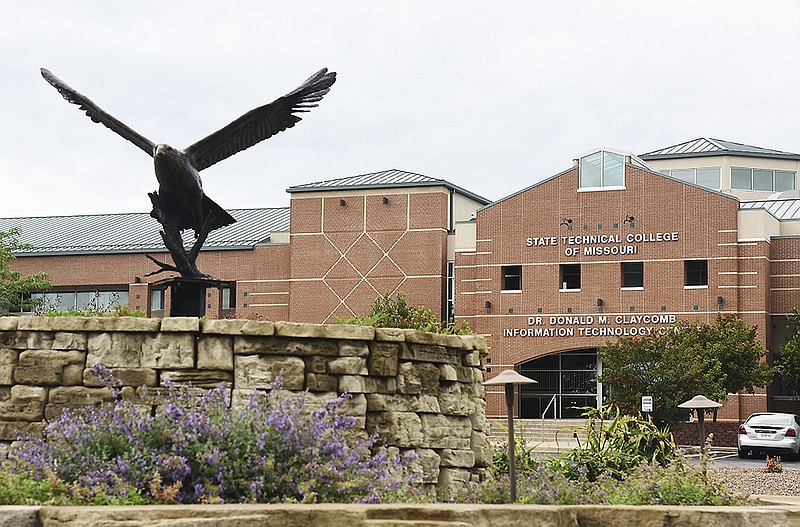LINN, Mo. - State Technical College of Missouri has launched a plan to grow, even as it's facing budget issues like Missouri's other public colleges and universities.
Unable to count on improved state revenues in the coming years, President Shawn Strong told the Board of Regents Friday, faculty staff and administrators considered several options.
"One week, we talked about doing a new strategic plan," he explained. "Very quickly, a week later, we came back and said, 'We're going to do a 'Strategic Growth' plan.'
"It's something much more focused - solely on growth."
A campus survey in February, with 160 responses, was used as the basis to begin developing the plan, with follow-up opportunities for "additional feedback" as it was being drafted.
"It's primarily - 80 to 90 percent - focused on growth," Strong explained, "but then there's 20 percent of things that are on people's minds, that I think we should address."
During a morning work session Friday, Strong walked the regents through details of the plan's four parts - Academic Programming, the physical plant, marketing and recruitment, and miscellaneous.
The proposals include offering a new Utility Technician degree, new Construction Trades programs the school currently doesn't have, and an associate's degree in nursing - with all likely starting in Fall 2018, just over a year from now.
The plan also looks at improving the "look" of the campus, including a more noticeable sign at the entrance on U.S. 50 east of Linn. Strong noted a number of eastbound drivers currently pass the entrance before they realize it.
Also in the plan is an ongoing effort to replace "Linn State" references with the newer, now 3-year-old "State Technical College of Missouri" name, so the school's "branding" is consistent.
Already underway is a move of student services offices into one building, so that students have more of a "one-stop" experience instead of needing to go to several different buildings.
Regents President John Klebba said the board supports it, although they didn't take an official vote.
"Additional emphasis on marketing, additional emphasis on recruitment - the only way we're going to get past this (financial) problem even if the state keeps us at current levels is to grow," Klebba said. "We are a very lean institution.
"It's pretty hard to make additional cuts."
While other schools have jumped into offering online programs, Strong noted State Tech hasn't done so. But the growth plan suggests that's something to look into.
In an interview, Strong acknowledged part of the school's reluctance for online courses has been its philosophy that students learn by doing.
"We have some simulations, but then we always follow that up with real, hands-on (work) with industrial, real-life equipment."
Still, Strong explained, there's a growing trend in education "to give credit for experience so, if somebody already had a tremendous amount of hands-on experience previously, we could give credit for some of that experience."
State Tech already does that in hiring its instructors, who may not have advanced degrees, but have work-experience using the skills they're teaching to new generations of students.
"Our bread-and-butter is hands-on, specialized technical education - and that's not going to change," Strong said.
Strong told the regents that State Tech administrators have been working from the strategic growth plan since May.
"The growth plan isn't as hard as coming up with the resources to grow - growth costs money," he told the News Tribune.
No matter how many new programs a school wants to offer, that can attract more students, Strong explained, "You have to hire faculty for all of them.
At least 15 students are needed to pay for all the instructional costs, he said.
"We have to get to 20 or 25 students before we start to make any money," Strong explained, "and that may take three years."
Klebba said one advantage State Tech may have over other state schools is its two-year degree programs, "and our placement rates are very high."

